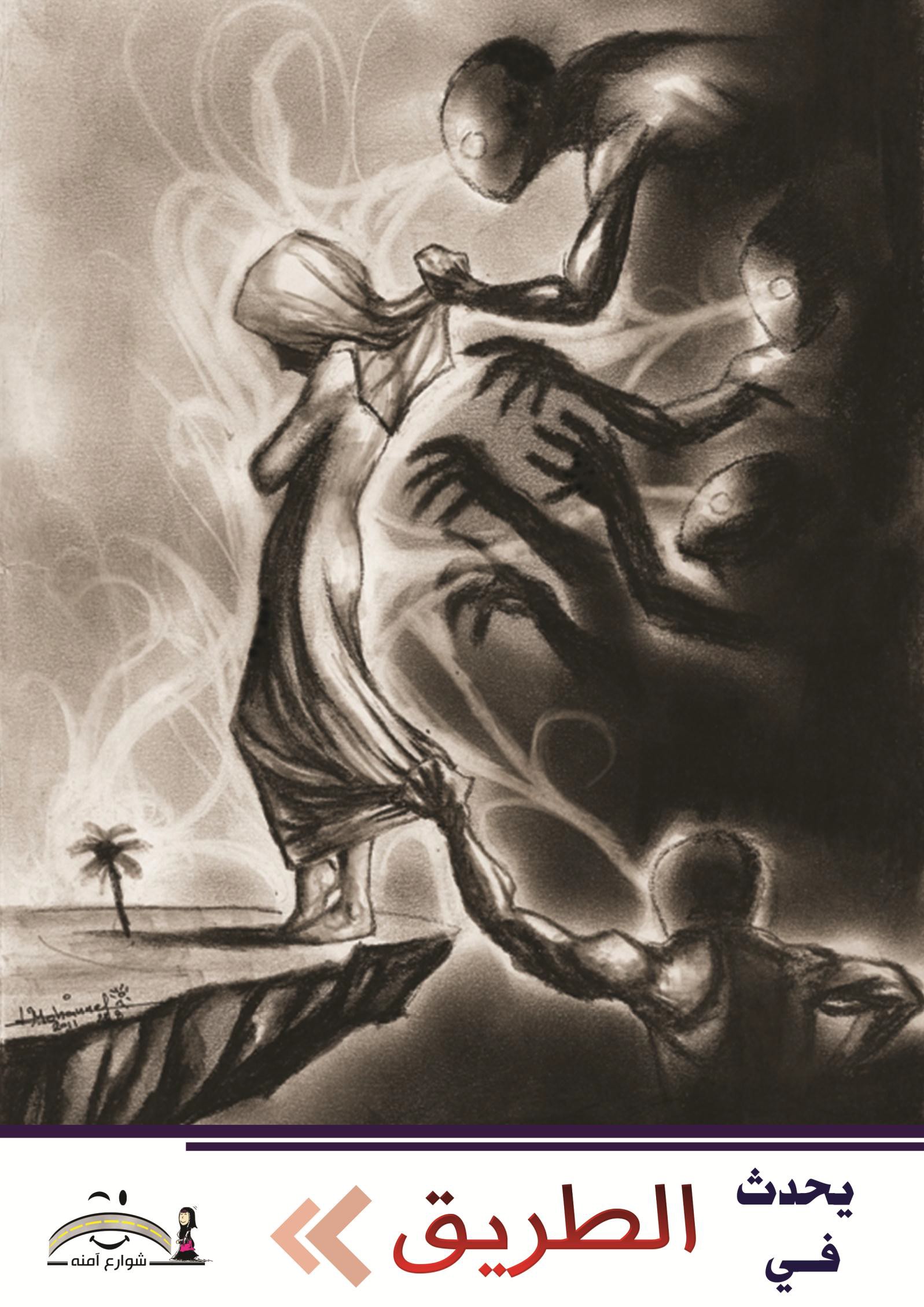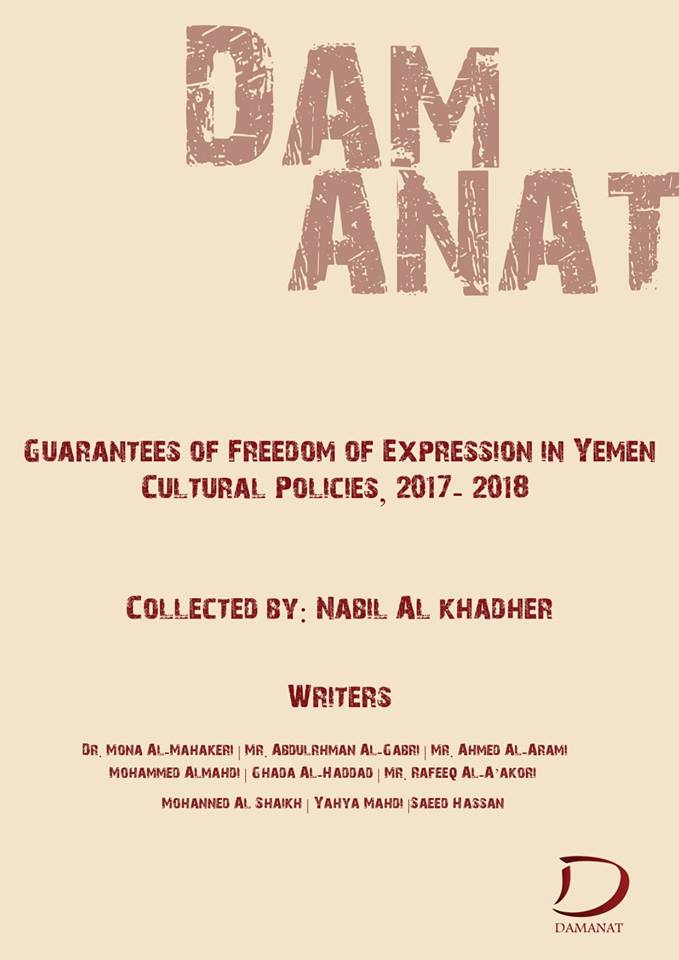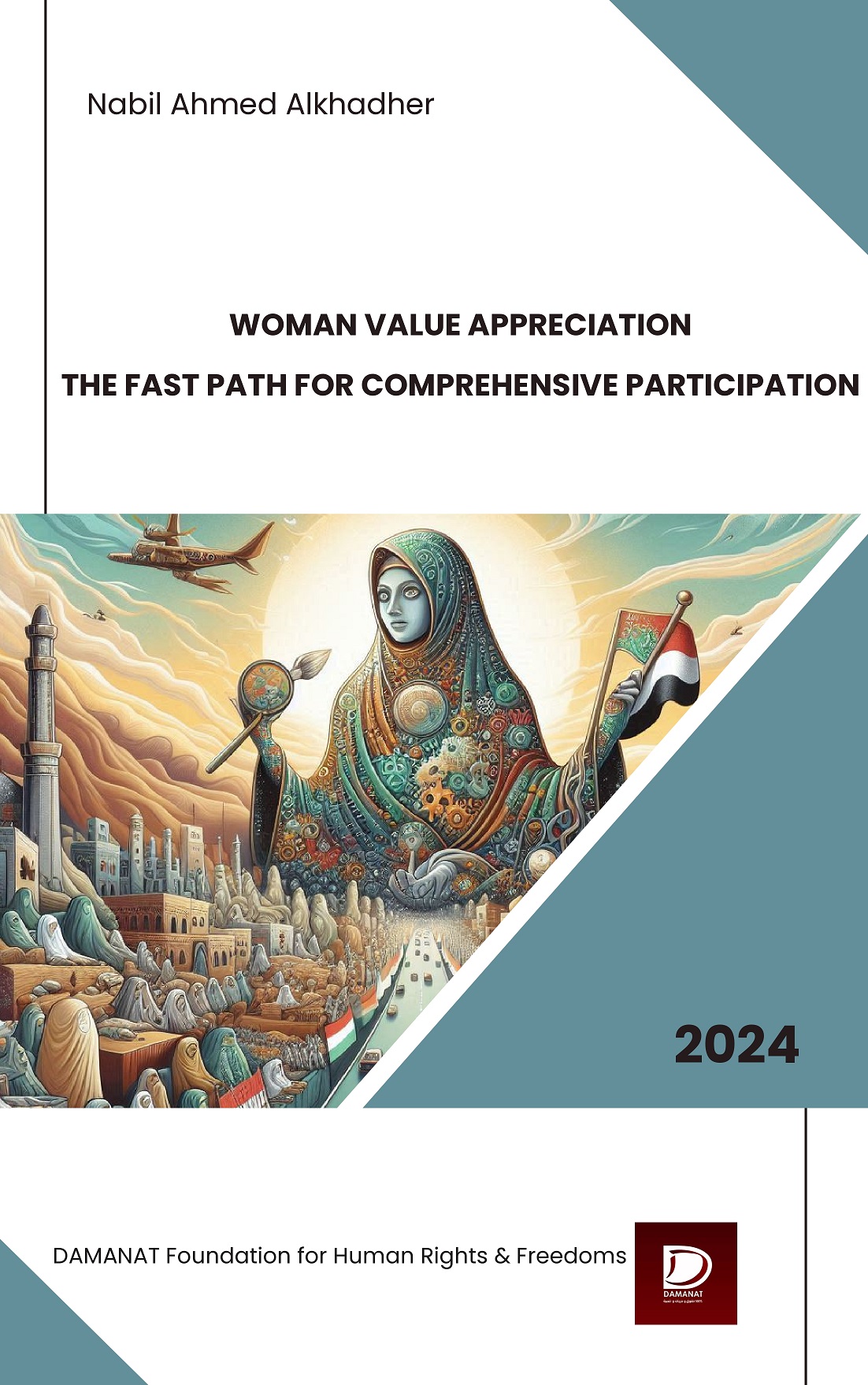Mon,Dec 15 ,2025

Freedom of Expression as A Way for Development
2025-04-23
Summary
This paper will contain a number of experiences in the Arab world and the whole world in the field of freedom of expression and its impacts on development through the creative industries and will provide information on freedom of expression in the Arab world with focus Yemen. Then it will provide a vision of the future in the presence of a policy of freedom of expression in Yemen to be applied by decision-makers and to identify its positive impact on human and development. The paper concludes with recommendations that support the issuance of a policy on freedom of expression in Yemen.
Theoretical Framework
Some consider that freedom of expression serves or is used only by those working in the media or literary field of in the field of expressing opinion as a whole. This is well known because of the nature of the expression is in the collective mind as a concept concerned with writing or verbal declaration. This is also known in light of the fact that many arrests in this are for journalists, activists and media professionals whose speeches are against the views of the ruling authorities. This is because journalists and media professionals are always on the front lines of hot political events. This is what happening in Yemen and the Arab world, too, especially in the period following the Arab Spring in 2011.
However, there are also many arrests and torture that have been deeply inflicted on artists, novelists, intellectuals and cultural activists.
The demonization of freedom of expression and a wide range of human rights came as a result of the rumors of the state and its elected or non-elected governments, which affected a lot the people in a way that affected on their vision negatively about human rights and freedoms. It also influenced the way the people's views and understanding of freedom of expression as a cause of conflict in Yemen.
However, this paper is not intended to discuss the concerns of freedom of expression and its human issues, this will be discussed among other papers in the policy draft of freedom of expression in Yemen, which is implemented by Dhamanat (Guarantees) Foundation for Rights and Freedoms with a support from Cultural Resource. On the contrary, this paper aims to discover the positive aspects related to freedom of expression and its role in increasing the growth of cultural and creative productions, then discovering the positive role of freedom of expression in development as well as disposing, even partially, from some pressing humanitarian issues such as poverty, illiteracy, extremism and other negative issues that have increased more and became part of the Yemeni community.
This paper seeks to convey the idea that respect for freedom of expression will push towards making large, medium and small projects and medium in hundreds of areas related to thinking, invention and talent. Because when a creator is free from the inner conscience, the execution blade, the extremist's bullet and the government prison, s/he will produce and create a lot of creative and cultural products, which in turn will bring more funds thus contributing to the Yemeni people economic and social welfare.
The objective of this paper is to change the perception of policymakers and Yemeni people towards freedom of expression as a more profitable concept rather than a problematic concept. This is studied by showing how this freedom have contributed to the growth of global economies and the extent to which freedom of expression contributes to the overall production of countries.
The call in this paper for a policy on freedom of expression in particular is not to show a bitter experience or tragic humanitarian stories though their importance. This paper is not based on the emotional concept, however, it focuses on looking forward to good life and then making a comparison to another region was not compared before by papers whose writers excelled in self-flagellation and reality as well as soliciting sympathy.
Are Creative Productions Profitable?
Creative productions are gaining increasing importance as a key drive to make job opportunities, knowledge, and economic prosperity. The World Bank Group estimates that creative industries account for up to 7% of global GDP and it is expected to grow about 10% annually.
The cultural industries include publishing, music, cinema, handicrafts and design, which are continuously growing. These industries need freedom of expression to be able to work so that it must result in contribution to the total national income.
At the level of the Arab world, economic sources believe that Saudia Arabia possesses several elements of excellence in the field of "creative industries" and that it has many human resources and natural resources that place it in a prominent position among the most advanced countries in this field. Experts pointed out that the Kingdom of Sauadi Arabia can compete strongly in world markets.
Egypt is seeking to support creative cultural industries "as a promising and growing sector in the global economy" and the Egyptian government is planning a project to establish a holding company for these industries.
Egyptians believe that the support of creative cultural industries means supporting the "Soft Power of Egypt" as well as the economic gains already achieved by countries that have made great steps in this regard within a vision seeks to include various areas of art such as plastic art, designs, handicrafts, antiques, fashion, films, video, photography, interactive games, advertising, software and music, however it is radically and decisively interested in innovation.
In Morocco, there is also a trend in this field. Participants have emphasized, in different professional workshops during the second meeting of Cultural and Creative Industries' Professionals held in "Al-Andulus - in the north of Morocco", that cultural industries can play the role of economic development in Morocco and Spain.
Despite the lack of initiatives available to work in small and medium-sized enterprises, the creative industries field in Kuwait is not far behind its counterparts of high-income and high-growth countries, where about 35,000 employees work in the sector, and the revenues of value added products account for hundreds of millions of Kuwaiti dinars, thus making it one of the largest non-oil sectors in Kuwait, accounting for 24% of the non-oil manufacturing sector and 72% of business services sector.
Creative industries contribute about 3% of the EU economy. The market value of these industries is about 500 billion Euros, with about 6 million people working in this field. This sector is crucial to innovation, especially in terms of tools and networks.
US sales accounts for 142 billion USD of these goods and services alone which are more than what it has exported of goods and services in the fields of agriculture, aviation and all relevant whichever. About 27 million people are working in the US economy directly or indirectly and approximately 750 thousand organizations in the US care of creativity and publishing of arts only with 3.1 million individuals working in them who represent 2.1 % of the task force there. California has the eighth-largest economy in the world, with a creative economy contributing more than $ 3 billion to domestic income and taxes in 2012.
Thus, there are evidences that the creative industries contribute strongly to find job opportunities and countries to get funds, so where is the problem of it now. Why Arab countries' revenues of creative industries did not increase?
Since this paper is about Yemen, the question will be where the scarcity of the contribution of the creative industries in the Yemeni economy and the role of these industries in development in Yemen would be; though Yemen has a lot of opportunities in this field that bring funds and create many job opportunities.
The problem lies in freedom of expression. Simply,
Let us know about freedom of expression.
Is Freedom of Expression Guaranteed?
Ms. Pénès Tlacola, Special Rapporteur on Freedom of Expression and Access to Information at the African Commission on Human and Peoples' Rights, says that ''There should be a strong commitment to make freedom of expression and access to information a reality, not just words on paper."
Journalists in Tunisia still face considerable pressure. At the beginning of 2016, a number of Tunisian journalists were interrogated by counter-terrorism security teams.
The freedom of information in Algeria is also in severe downturn and officials' statements emphasized the hostility towards press freedom in 2016.
The National Intelligence and Security Service in Sudan, which was granted powers, harass and monitor journalists, control printed media through censorship and confiscation of its issues.
In Egypt, the state of freedom of thought and expression continued to deteriorate in 2016, and press freedom was not free from such downturn.
Freedom of opinion and expression in Jordan is too in a critical situation. Journalists in Jordan are under close surveillance by the intelligence services and must be affiliated with the Jordanian-controlled Press Syndicate.
Human Rights in Iraq was critical during 2016, as conflict continued and human rights violations were committed by all parties.
Human rights' defenders, including journalists and those who exercise the right to freedom of expression, were harassed, threaten, and killed in 2016.
In Saudi Arabia, activists are targeted on the Internet for expressing their freedom of opinion and expression.
On the other hand, freedom of opinion and expression is also a major issue in Oman being under high levels of censorship that have imposed strict laws and restrictions on human rights activities. The government agencies in Oman have limited the press and media corporations to government's propaganda and its achievements. They tend to ban any criticism that talks about the Executive Authority's errors and practices or that uncovers facts about corruption issues in the administrative body.
The year 2016 witnessed the adoption and application of a number of laws and decrees that include excessive restrictions on freedom of expression and the press. They are clearly aimed to muzzle and restrict freedoms.
Yemen exercises full monopoly over radio and television's means of broadcasting and prevents to be owned by persons. It also takes control of Yemeni News Agency, blocks online websites, withdraws licenses of profession and monitors the media and access to information. In addition, it uses threats, abuses, and attacks against journalists, which supports the idea that the right of expression is the most violated in Yemen.
The fear of freedom of expression is not only limited to the media and journalists, but applies to all aspects that, in essence, are related to freedom and human and his desire of expression. This applies to the novelist, visual artist, designer, website's owner, the inventor, the dancer and singer. Here, we must choose and decide between either freedom of expression with the money and wealth that will be brought by creative industries and the public creative production or violation of freedom with poverty and preventing any creativity from appearance because it may not be commensurate with the orientation of the government, the fundamentalist ideology or the general orientation of society.
Good Choice:
There is no nation more diverse on the cultural side than Yemen. Each district/area in Yemen has its dialect, so when we travel from village to another, we find a different style of folk dance, chants and songs; even though one ruling authority or several ruling authorities had one style of dance or folklore as read and seen by tales, stories, legends, and cultural style as a whole.
Yemen has a unique diversity. Even in cities, established through emigration from rural places to urban cities, we see the style of food items and furniture different from one house to another, as is the most one has diversity in the neighboring countries.
That is why Yemen, in general, has more cultural diversity than any other country in the world. Yemen is a diverse country that has a great number of historical sites, antiquities and environmental places. It also has a diverse music heritage ranging from Sananian and Hadhrami music to the music heritage in Al-Hudaida, Taiz and all other Yemeni cities. In addition, there was artistic diversity based on sectarian-religious diversity such as Jewish music, Baha'ai and Sufi creativities even the Huthi-embraced Zwamil which are primarily derived from Zamil as a traditional folk heritage to say the least.
Moreover, Yemen has a tremendous group of handcrafts products which are totally different comparable to other neighboring nations such as the golden, silver, crockery-stony, home-made products and the clothing items for men, women, and children alike.
Yemeni literature is highly valued as good in the Arab region and it has a platform or market for the purpose of circulating and promoting its categories such as poetry, short story, novel or criticism.
The possibility of Yemen to claim a respected status in Arab and global market for creative industry, which lies in creating laws to guarantee freedom of expression and thus liberating creative industry and Yemeni creators from the official restrictions and funambulist violence, just requires flexibility and understanding to the nature of creative work and how to support it.








